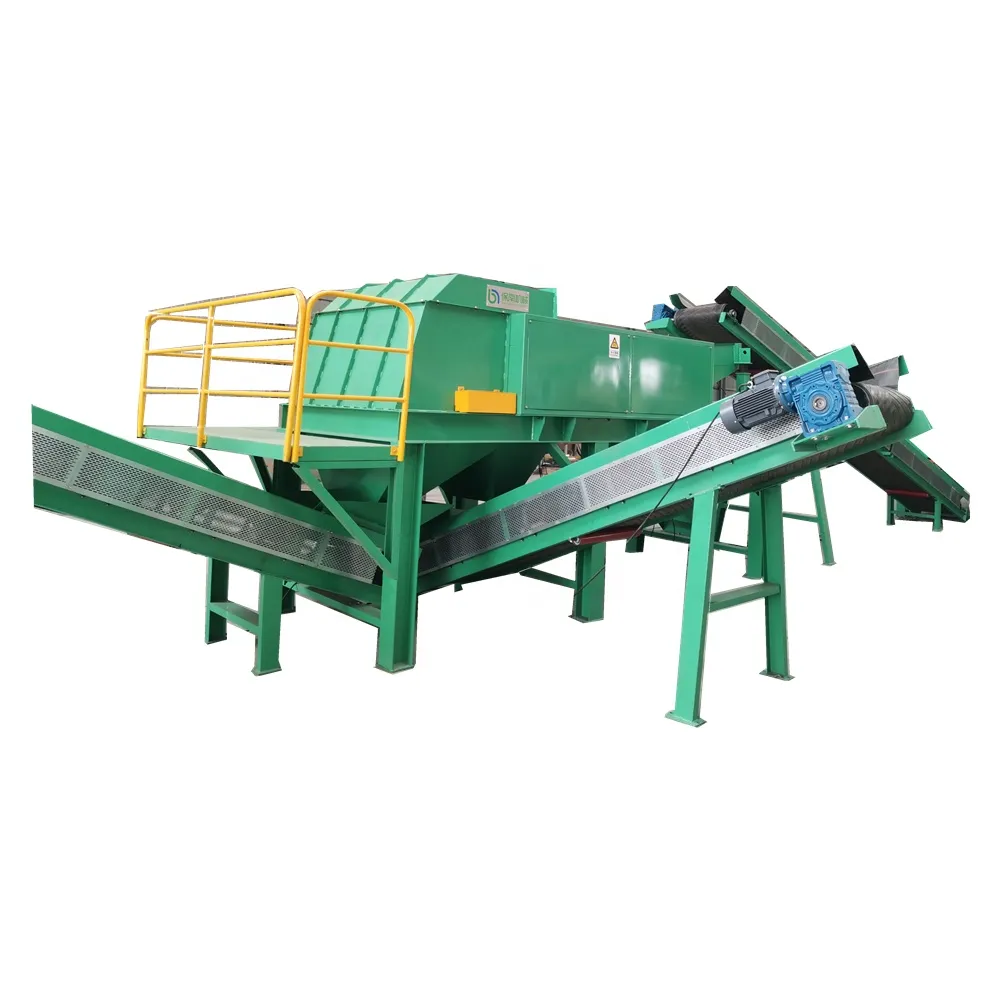

Dec . 16, 2024 19:55 Back to list
The Industrial Chipper Revolutionizing Waste Management
In recent years, the world has witnessed a growing emphasis on sustainable practices, particularly in waste management and recycling. One of the key innovations that have emerged in this area is the industrial chipper. This powerful machine is designed to break down a variety of materials, including wood, yard waste, and other organic matter, into smaller chips or mulch. The industrial chipper plays a crucial role in both environmental conservation and efficiency in various industries, ranging from forestry and landscaping to construction and recycling.
Understanding the Industrial Chipper
At its core, an industrial chipper is a robust piece of machinery capable of processing large volumes of material quickly and efficiently. It operates by utilizing sharp blades that rotate at high speeds to shred materials into uniform chips. Depending on the model and intended use, industrial chippers may vary in size and mechanism, ranging from small, portable units for local landscaping services to large, stationary models used in lumber mills and large-scale waste management facilities.
The versatile nature of industrial chippers allows them to handle diverse materials. They can efficiently process tree limbs, brush, and leaves, turning what would otherwise be waste into useful byproducts like mulch or wood chips. This not only reduces the volume of waste sent to landfills but also provides valuable resources that can be used in various applications, such as landscaping, erosion control, and biomass energy production.
Environmental Impact
The environmental benefits of using industrial chippers cannot be overstated. As more municipalities and companies strive to minimize their ecological footprint, the role of these chippers in facilitating recycling and waste reduction becomes increasingly vital. By converting organic waste into mulch or chips, industrial chippers significantly decrease the amount of organic material that ends up in landfills, where it would contribute to methane emissions, a potent greenhouse gas.
Moreover, the wood chips produced by industrial chippers can be repurposed into a variety of applications
. They can serve as mulch in gardens, helping to conserve moisture, suppress weeds, and improve soil health. Additionally, chips can be utilized as a biomass fuel source, providing a renewable energy alternative that can reduce reliance on fossil fuels.
Applications Across Industries
Industrial chippers find applications across multiple sectors. In the forestry industry, they play a critical role in processing timber and managing forest debris, ensuring that logging operations are efficient and environmentally responsible. In landscaping, contractors use industrial chippers to clear away brush and debris after tree removals, thereby transforming waste into usable products.
Construction companies also benefit from industrial chippers during site cleanup, as these machines can quickly handle excess wood and vegetative debris, allowing projects to proceed more smoothly. Furthermore, in urban areas, municipal services use industrial chippers to maintain parks and green spaces, chip fallen branches, and manage yard waste collected from residents.
Technological Advancements
Recent advancements in technology have further enhanced the efficiency and capabilities of industrial chippers. Innovative features such as automated feed systems, noise reduction technology, and advanced safety mechanisms have made them safer and more user-friendly. Manufacturers are also developing electric and hybrid models, which reduce emissions and promote cleaner operations, aligning with global trends toward cleaner energy solutions.
The incorporation of smart technology, such as sensors and IoT capabilities, allows for real-time monitoring and diagnostics. This makes it easier to manage operations, track maintenance schedules, and optimize performance, thereby extending the life of the equipment and improving operational efficiency.
Conclusion
The industrial chipper stands as a testament to the ongoing evolution of waste management technology. As industries continue to seek out sustainable practices, these robust machines offer an effective solution for transforming organic waste into useful products. By reducing landfill contributions and creating valuable resources, industrial chippers play a significant role in advancing environmental stewardship while supporting diverse industries committed to sustainability. As innovations continue to evolve, the impact of industrial chippers on waste management will only grow more profound, shaping a greener future for generations to come.
Latest news
Troubleshooting Common Eddy Separator Problems
NewsJul.04,2025
The Role of Metal Recycling Plants in Circular Economy
NewsJul.04,2025
The Impact of Recycling Line Pickers on Waste Management Costs
NewsJul.04,2025
Safety Features Every Metal Shredder Should Have
NewsJul.04,2025
How Industrial Shredders Improve Waste Management Systems
NewsJul.04,2025
How Cable Granulators Contribute to Sustainable Recycling
NewsJul.04,2025